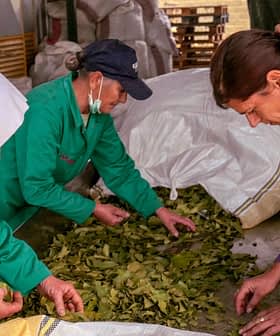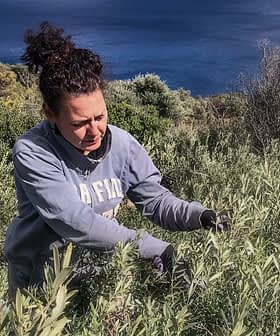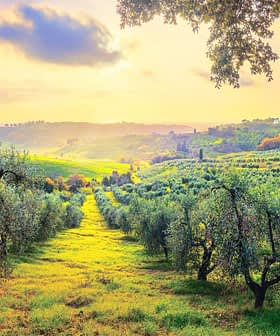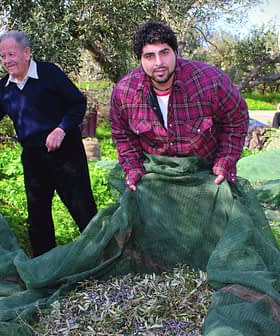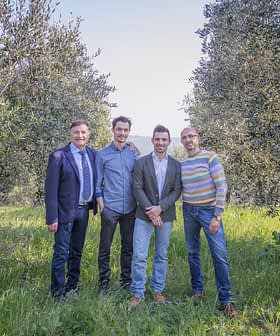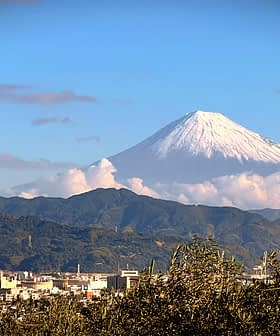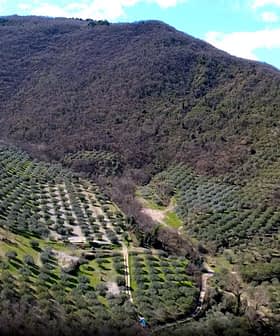After Devastating Year, Brazilian Producers Defy Odds
Intense rainfall in Rio Grande do Sul in 2024 hindered local olive growers, leading to flooding, fatalities, and significant damage. Despite the challenges, Brazilian producers like Estância das Oliveiras and Olivas de Gramado won awards at the 2024 NYIOOC, showcasing the quality of Brazilian extra virgin olive oil despite lower production volumes.
Intense rainfall inundated the southern Brazilian state of Rio Grande do Sul between April and May 2024, significantly hindering the efforts of local olive growers.
During the crucial harvest weeks, 800 millimeters of rain — more than half the annual expected volume — drenched a large portion of the region in less than 15 days. The flooding caused 181 fatalities and inflicted $3.7 (€3.47) billion in damage across the region.
It’s exciting to think that this could lead to a growing olive oil culture in our country.
While the flooding did not damage many groves, devastated by springtime rain in September 2023 that prevented pollination, producers reported difficulties shipping products, receiving packaging materials and dealing with personal losses.
In such a challenging context, it is unsurprising that the number of Brazilian extra virgin olive oils sent to the 2024 NYIOOC World Olive Oil Competition dropped to just 14, compared to 53 entries the previous year.
See Also:The best extra virgin olive oils from BrazilEstância das Oliveiras, located in Viamão, Rio Grande do Sul, was among the 2024 winners. It earned a Gold Award for its flagship extra virgin olive oil, a blend of Arbosana, Arbequina and Koroneiki olives. This marks its third consecutive win.
However, participating in the NYIOOC this year required extraordinary efforts from the family-owned company.
“Our state faced the worst climate disaster in Brazil’s history, with massive flooding in several major cities, including our capital,” said managing partner Rafael Sittoni Goelzer. “Despite all the devastation, we produced olive oils that won international acclaim.”
“The airport in our region was completely submerged and remained inoperative for six months, from May to October,” he added. “We had to travel over 1,000 kilometers to ship our oils to competitions from an airport in another state. Yet, all this effort and resilience were rewarded with significant accolades.”
Rio Grande do Sul remains the most crucial Brazilian olive oil-producing state, accounting for about 75 percent of the national yield. However, the state produced just 193,150 liters of olive oil in 2024, 67 percent below the record-high 2023 yield and well beneath the five-year average of 295,346 liters.
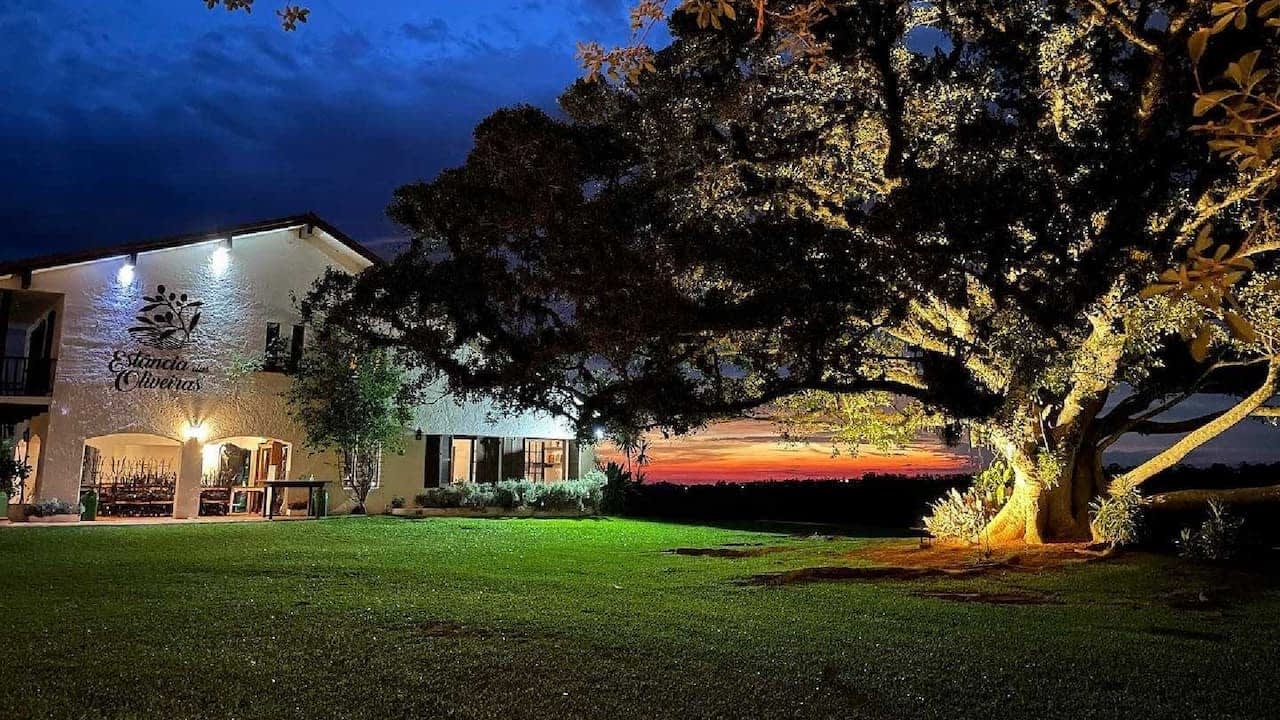
Estância das Oliveiras achieved a third-consecutive win at the 2024 NYIOOC. (Photo: Estância das Oliveiras)
“Many producers here lost their harvests this year due to the rains in September and October 2023, which directly impacted their olive groves,” said André Bertolucci, the co-owner of Olivas de Gramado in Rio Grande do Sul.
“This saddened us greatly because we understand the immense challenges of investing in olive cultivation here, as it is not among the recognized ‘commodities’ of Brazilian agribusiness,” he added.
While many regions in the state were severely affected by rainfall and floods, Olivas de Gramado was spared.
The company won a Silver Award for its Terroir Serrano, a blend of Arbequina, Picual, Frantoio, Koroneiki, Ascolana and Manzanilla olives.
“For us here in Serra Gaúcha, in the interior of Rio Grande do Sul, being awarded for the second consecutive year at the NYIOOC is a great honor, especially considering the participation of excellent producers from all over the world,” Bertolucci said.
“Being among the best is an incredible recognition of the hard work, dedication, and love from the entire Olivas de Gramado team,” he added.
This year’s award was also special because it was the first one where Bertolucci and his team produced olive oil in their own mill. Previously, they relied on the Goelzer family’s mill.
“This year, the milling responsibility fell on me, and with the support and encouragement of wonderful people from across the national olive oil sector, we managed to do a good job,” he said.
According to Bertolucci, Brazil is home to a burgeoning scene of high-quality olive oil producers.
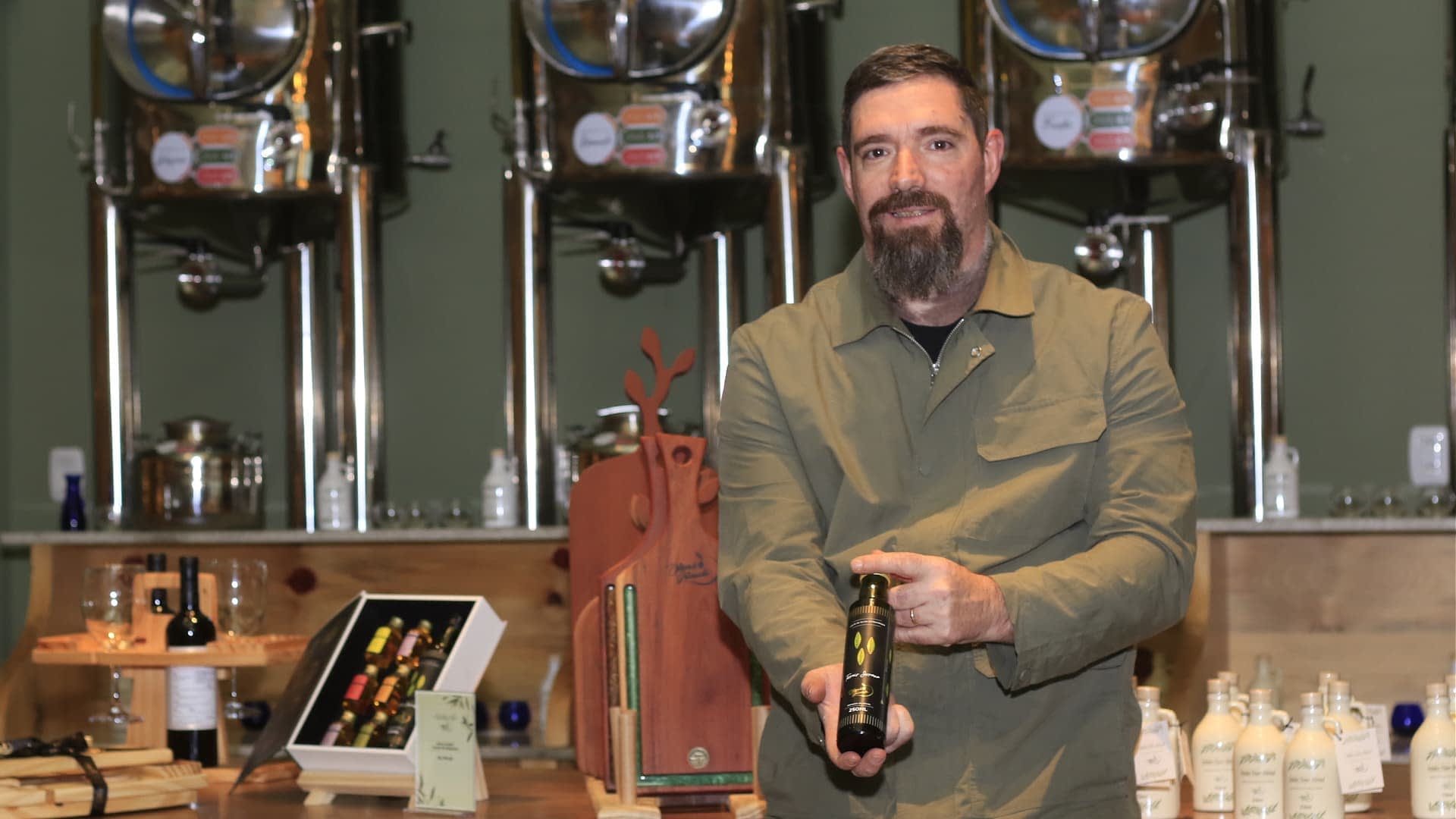
Andre Bertolucci celebrated a second-straight NYIOOC award. (Photo: Olivas de Gramados)
“It is a new era, producing high-quality oils using cutting-edge technology and skilled labor in olive grove management, harvesting and the extraction process,” he said.
Despite the harvest challenges, producers were not completely surprised by the country’s continued success at the World Competition.
“We knew we were on the right path, studying extensively, exchanging ideas and information with other Brazilian producers, and investing in our olive grove as well as building our mill, which optimized the entire process,” Bertolucci said.
“We also believe that the influence of our unique ‘terroir’ was one of the key factors in achieving these extraordinary results,” he added.
Another award-winning producer, Al-Zait, celebrated another year of success at the 2024 NYIOOC with its Picual monovarietal.
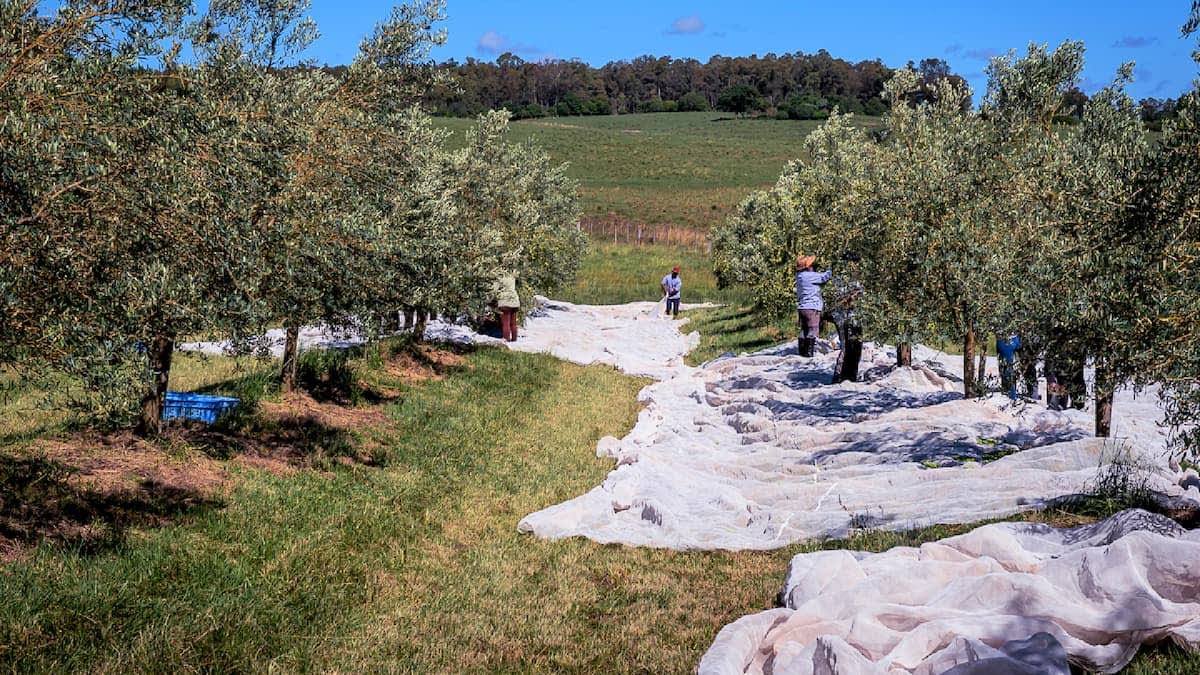
The extreme flooding in Brazil impacted producers including Al-Zait. (Photo: Al-Zait)
“Our triumph in New York was an incredible moment for us,” said co-owner Luiza Osorio. “Being recognized once again among the best in the world is a great honor and a reflection of our commitment to producing high-quality olive oil.”
“For us, it’s a validation of all the hard work, passion and dedication we put into each harvest,” she added. “This recognition motivates us to continue pushing the boundaries of excellence and proudly represent Brazil on the global stage.”
Al-Zait’s operations were directly affected by the extreme weather events.
“The excess rain significantly impacted our olive groves,” Osorio said. “The heavy rainfall not only threatened fruit quality but also led to a reduction in our overall production volume.”
“Additionally, we experienced varying flowering periods due to unexpected heat waves during the winter, which further complicated the growth cycle of our olives,” she added. “Despite these setbacks, our team worked tirelessly to maintain the highest standards throughout the process.”
According to Osorio, the wins at the NYIOOC for Brazilian-made high-quality olive oils represent an opportunity for all stakeholders.
“Winning this prestigious award shines a light on the quality of Brazilian extra virgin olive oil and helps educate local and international consumers about the potential of our products,” Osorio said.
“We believe that as more people recognize the craftsmanship and dedication behind producing olive oil of this caliber, it will inspire greater appreciation and demand for high-quality extra virgin olive oil in Brazil,” she added.
“It’s exciting to think that this could lead to a growing olive oil culture in our country,” Osorio concluded.


